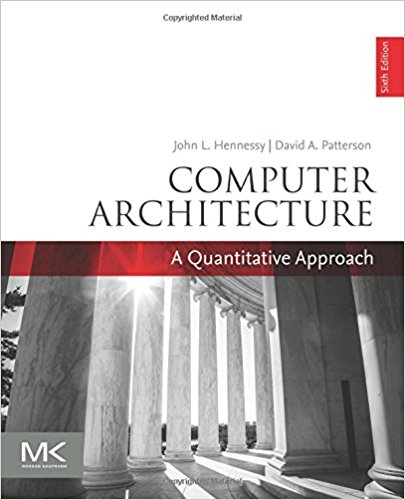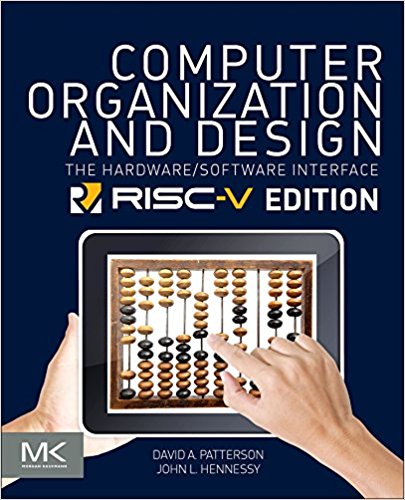Course Information for CS152: Computer Architecture and Engineering
Spring 2022
Catalog Description: Computer Architecture and Engineering
4.0 units. Three hours of lecture, plus one section per
week.
Prerequisites: CS61C.
Class Schedule/Rooms
Lectures: Tuesday and Thursday, 9:30AM-11:00AM, via Zoom through January 27 then in person in 306 Soda (date subject to change).
Discussion Sections: Friday 12:00-2:00PM DIS 101 / Friday 2:00-4:00PM DIS 102
Both discussion sections via Zoom through January 28 then in person in 310 Soda (date subject to change).
Both midterms held in class during lecture times.
Instructor: John
Wawrzynek, Professor, EECS Department
Email: johnw at eecs
Office Hours: Thursday 11:00AM-12:00, via Zoom through January 27 then in 631 Soda (email for Zoom link)
TA: Hasan Genc
Email: hngenc at berkeley
Office Hours: Wednesday 4:00PM-5:00PM via Zoom through January 27 (see Piazza for Zoom link)
TA: Josh Kang
Email: minwoo_kang at berkeley
Office Hours: Tuesday 4:30PM-5:30PM via Zoom through January 27 (see Piazza for Zoom link
Course Grading
The course is organized into five modules, with each module
having a problem set, and a lab. The grade breakdown is given
below, but a failure to complete the majority (at least 3/5) of
the labs will result in an automatic F.
Problem sets and lab reports will be submitted through Gradescope.
Please refer to the pinned Piazza announcement for the course entry code.
15% Problem Sets
We will distribute 5 problem sets for you to practice your
understanding of the course material. The problem sets also
provide essential background material for the midterms. The
problem sets will be graded primarily on an effort basis, but if
you do not work through the problem sets you are unlikely to
succeed in the exams! We will distribute solutions to the
problem sets after the problem sets are due to give you instant
feedback.
25% Labs
The labs will provide hands-on experience with the interaction
of software and hardware, for a variety of machine designs. We
will be making extensive use of designs written in
the Chisel
hardware description language. Each lab includes a directed
component to guide students in learning certain concepts, plus
an open-ended assignment to allow students to show their
creativity. Failure to complete at least three labs will
result in an automatic F grade.
60% Exams
There will be 2 midterms (15% for each) and the final exam (30%)
covering the material learned in readings, labs, and problem
sets. These will be closed book with no calculators, phones,
smart watches, or computers of any kind allowed.
See also Departmental Grading Guidelines for Undergraduate Courses.
Late Assignment Policy
Problem sets must be handed in at the beginning of class on the due
date, with no extensions possible. Each student gets two "free"
extensions of the lab assignments, where labs can be turned in one class
after the original due date. No other extensions will be given, unless
for serious documented emergencies. An automatic F grade is
given if less than three labs are completed.
Collaboration Policy
The problem sets are intended to help you learn the material, and we
encourage you to collaborate with other students and to ask questions
in discussion sections and office hours to understand the problems.
However, each student must turn in their own solutions to the
problems.
Students are encouraged to discuss solutions to the lab assignments
with other students, but must run through the directed portion of the
lab by themselves and turn in their own lab report. For the
open-ended portion of each lab, students can work individually or in
groups of two or three. Any open-ended lab assignment completed as a
group should be written up and handed in separately. Students are
free to take part in different groups for different lab assignments.
Regrade Policy
Requests for regrades on midterms, problem sets, and labs must be submitted through gradescope within
one week of grades being posted.
Academic Accommodation Policy
Students with disabilities who need accommodations to access
this course will be accommodated. Please contact DSP and apply for
services. If you have emergency medical information you wish to share, or
if you need special arrangements in case the building must be
evacuated, please inform us as soon as possible. Please see John privately
after class or in his office hours.
Webcast
Video recordings of the lectures will be made available (requires CalNet/bConnected log-in),
with the links posted on Piazza.
The lectures can only be made available to registered Berkeley
students.
Piazza
The course will use Piazza for class communication. The course page can be
found at piazza.com/berkeley/spring2022/cs152252a.
Compute Resources
All labs will be available on eda-{1..8}.eecs.berkeley.edu (eda-1.eecs, eda-2.eecs, etc.).
You may want to use other servers for writing code or compiling, and you can see a full list of them at
inst.
Textbooks
The following textbook is highly recommended for the course:
 |
J. L. Hennessy and D. A. Patterson, Computer
Architecture: A Quantitative Approach, 6th Edition, Morgan
Kaufmann Publishing Co., Menlo Park, CA. December 2017.
ISBN13: 978-0128119051
ISBN10: 0128119055
We will also use material from the companion website:
6th Edition,
5th Edition
|
The following textbook is recommended to refresh your background and
to provide a simpler introduction to some of the basic concepts. Any
recent edition should be sufficient for background study.
 |
D. A. Patterson and J. L. Hennessy, Computer
Organization and Design RISC-V Edition: The Hardware Software Interface,
1st Edition, Morgan Kaufmann Publishing Co., Menlo Park, CA., April 2017.
ISBN13: 978-0128122754
ISBN10: 0128122757
|


